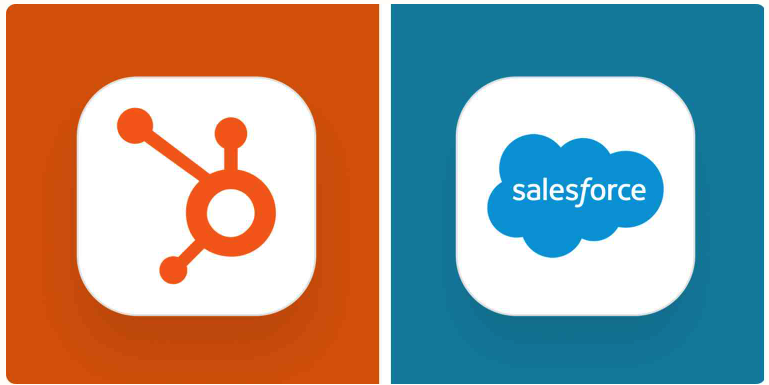HubSpot vs Salesforce: Choosing the Right CRM Platform for Your Business

Overview:
- HubSpot: HubSpot is an all-in-one inbound marketing, sales, and service platform designed for small to medium-sized businesses. It offers tools for CRM, marketing, sales, and customer service.
- Salesforce: Salesforce is a cloud-based CRM platform that caters to businesses of all sizes. It provides a range of products and solutions for sales, marketing, customer service, and more.
CRM Functionality:
- HubSpot: Provides a user-friendly interface, ideal for small to medium-sized businesses. It’s known for its ease of use, integration with marketing tools, and lead management capabilities.
- Salesforce: Offers extensive customization options, scalability, and a wide array of integrations. Often preferred by larger enterprises due to its flexibility and robust features.
Sales and Marketing Tools:
- HubSpot: Integrated platform offering CRM, email marketing, social media management, content management, and SEO tools.
- Salesforce: Comprehensive suite for sales and marketing, including lead management, opportunity tracking, marketing automation, and analytics.
Pricing:
- HubSpot: Offers various pricing tiers based on features and the number of contacts. Provides a free version with limited functionalities.
- Salesforce: Pricing varies based on the products and features chosen. Known to be more expensive, especially for additional functionalities and customizations.
Integration and Customization:
- HubSpot: Integrates well with various third-party apps and services. Limited in terms of deep customization compared to Salesforce.
- Salesforce: Known for its extensive customization options and vast marketplace of third-party integrations and apps via its AppExchange.
User Experience:
- HubSpot: Intuitive interface, easy to navigate, and user-friendly, making it suitable for users with varying technical expertise.
- Salesforce: Can have a steeper learning curve due to its depth and complexity. It offers a lot of customization options, which may require more training.
Target Audience:
- HubSpot: Ideal for small to medium-sized businesses looking for an integrated, user-friendly platform for marketing, sales, and service.
- Salesforce: Suited for larger enterprises that require highly customizable CRM solutions and have more complex needs across various departments.
Support and Community:
- HubSpot: Offers a robust knowledge base, community forums, and customer support via email and live chat.
- Salesforce: Known for its extensive community, training resources, and customer support including phone, email, and chat support.
Mobile Experience:
- HubSpot: Provides a mobile app for basic CRM functionalities, suitable for on-the-go access.
- Salesforce: Offers a comprehensive mobile app with extensive functionalities for sales, service, and marketing professionals.
Ultimately, the choice between HubSpot and Salesforce depends on the specific needs, scale, and preferences of the business. HubSpot caters more to simplicity and integration, while Salesforce is known for its scalability and deep customization options.